- Home
- Best Pet for Me
- Chinese Water Dragon Pet
Chinese Water Dragon Pet - What You Need to Know Before You Adopt
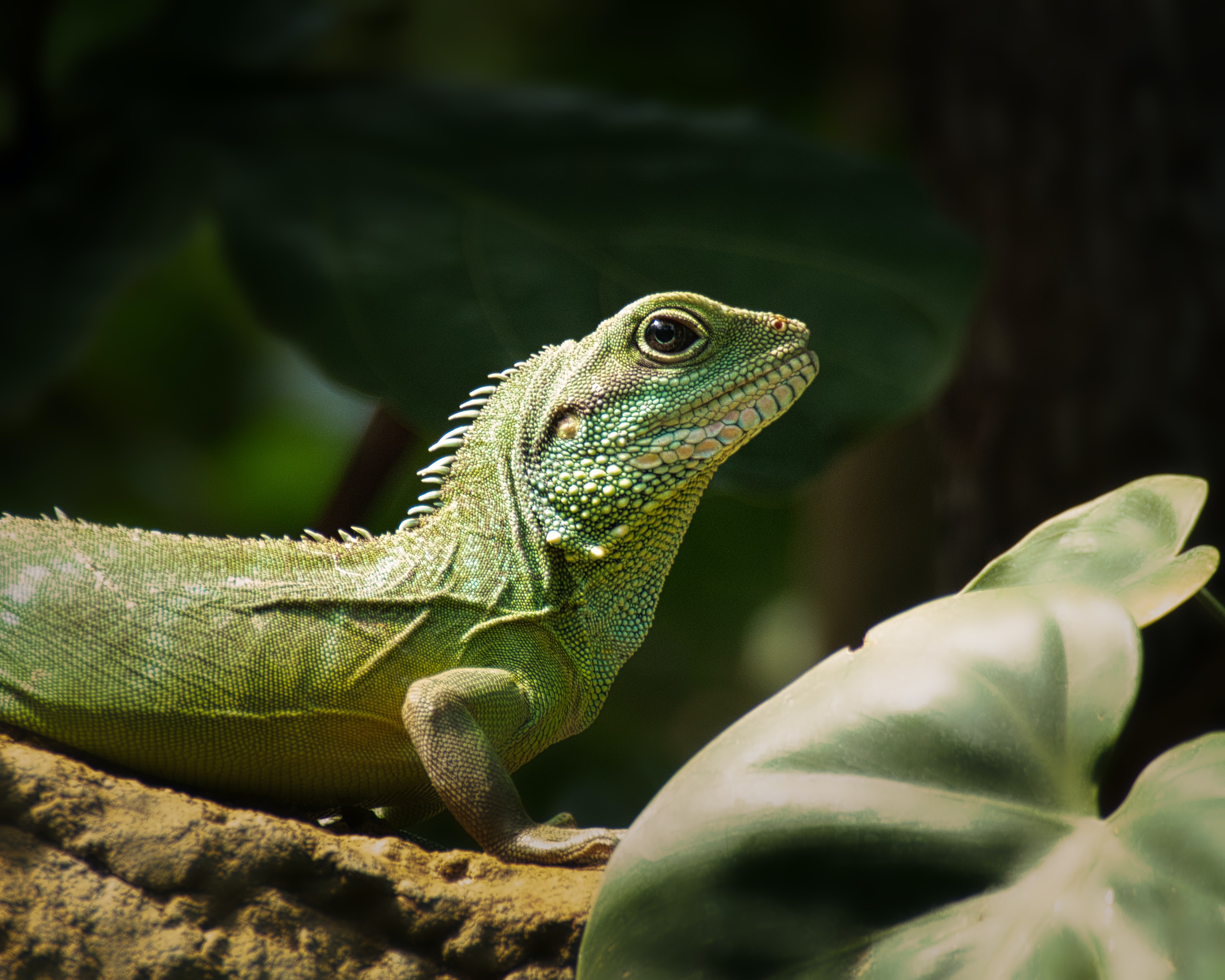 Photo by Volker Kaes: https://www.pexels.com/photo/a-green-chinese-water-dragon-in-close-up-shot-13014817/
Photo by Volker Kaes: https://www.pexels.com/photo/a-green-chinese-water-dragon-in-close-up-shot-13014817/Having a Chinese Water Dragon pet is an increasingly a popular choice for reptile enthusiasts and pet lovers alike, and it’s easy to see why. These captivating creatures are not only relatively small, but they also boast a calm and friendly nature that makes them ideal companions for anyone looking for a unique, yet manageable, pet. With the right care, a Chinese Water Dragon pet can thrive in your home and become a truly engaging, hypoallergenic pet that brings a touch of exotic charm to your life.
One of the most appealing aspects of a Chinese Water Dragon pet is their manageable size. Unlike larger reptiles, such as iguanas or monitor lizards, water dragons typically reach a length of about 2 to 3 feet, including their tail, making them an ideal size for most homes. They’re big enough to be fascinating to watch, yet small enough to be housed in a reasonably-sized enclosure. Their size and temperament make them an excellent option for first-time reptile owners, as they are generally easier to handle and less intimidating than their larger counterparts.
Another attractive feature of a Chinese Water Dragon pet is their remarkable temperament. These reptiles are known for their docile, friendly nature, and they can become quite tame with regular interaction. Unlike some other reptiles that are more solitary or skittish, water dragons tend to enjoy the presence of their owners and can often be seen basking in their tank or climbing on their branches, happily observing their environment. Many owners report that their water dragons become affectionate over time, developing bonds with their human caretakers and enjoying gentle handling. This makes them an ideal pet for families or individuals looking for a reptile that is not only interesting to watch but also engaging and responsive.
In addition to being friendly, a Chinese Water Dragon pet is also hypoallergenic, which makes them an excellent choice for those who are allergic to traditional pets, like cats or dogs. While some reptiles can still trigger allergic reactions due to shedding skin or dander, water dragons generally pose fewer allergy risks. Their smooth scales don’t shed fur, and their relatively low-maintenance diet and habitat make them easier to care for without worrying about the typical allergens that come with other pets.
Water dragons are also incredibly fascinating to observe. They have an almost magical appearance, with long, slender bodies, distinctive spiny crests along their heads and backs, and vibrant coloration that can range from shades of green and brown to more striking hues, depending on their habitat and species. Their natural behaviors, such as climbing, swimming, and basking, provide endless entertainment. Their aquatic tendencies make them unique among reptiles, as they thrive in environments that feature both land and water elements. Watching them swim or sunbathe creates an intriguing, almost meditative experience for their owners.
Of course, like any pet, a Chinese Water Dragon pet requires proper care to thrive. They need a warm, humid environment with plenty of room to roam, including both aquatic and terrestrial areas within their enclosure. A spacious tank with a shallow water pool for swimming, along with climbing branches or rocks, will mimic their natural habitat and allow them to exhibit their natural behaviors. Water dragons are also relatively easy to feed, typically enjoying a diet of live insects, fruits, and vegetables. You'll want to give them vitamin supplements as well/
Whether you’re a seasoned reptile keeper or a first-time pet owner, a water dragon offers the perfect combination of personality, appearance, and low allergenic potential. With their unique characteristics, friendly nature, and manageable size, water dragons truly make fascinating and lovable companions for anyone looking for a one-of-a-kind pet with an unforgettable name.
A Chinese Water Dragon Pet: Friendly, Fascinating Animals with a Few Important Considerations
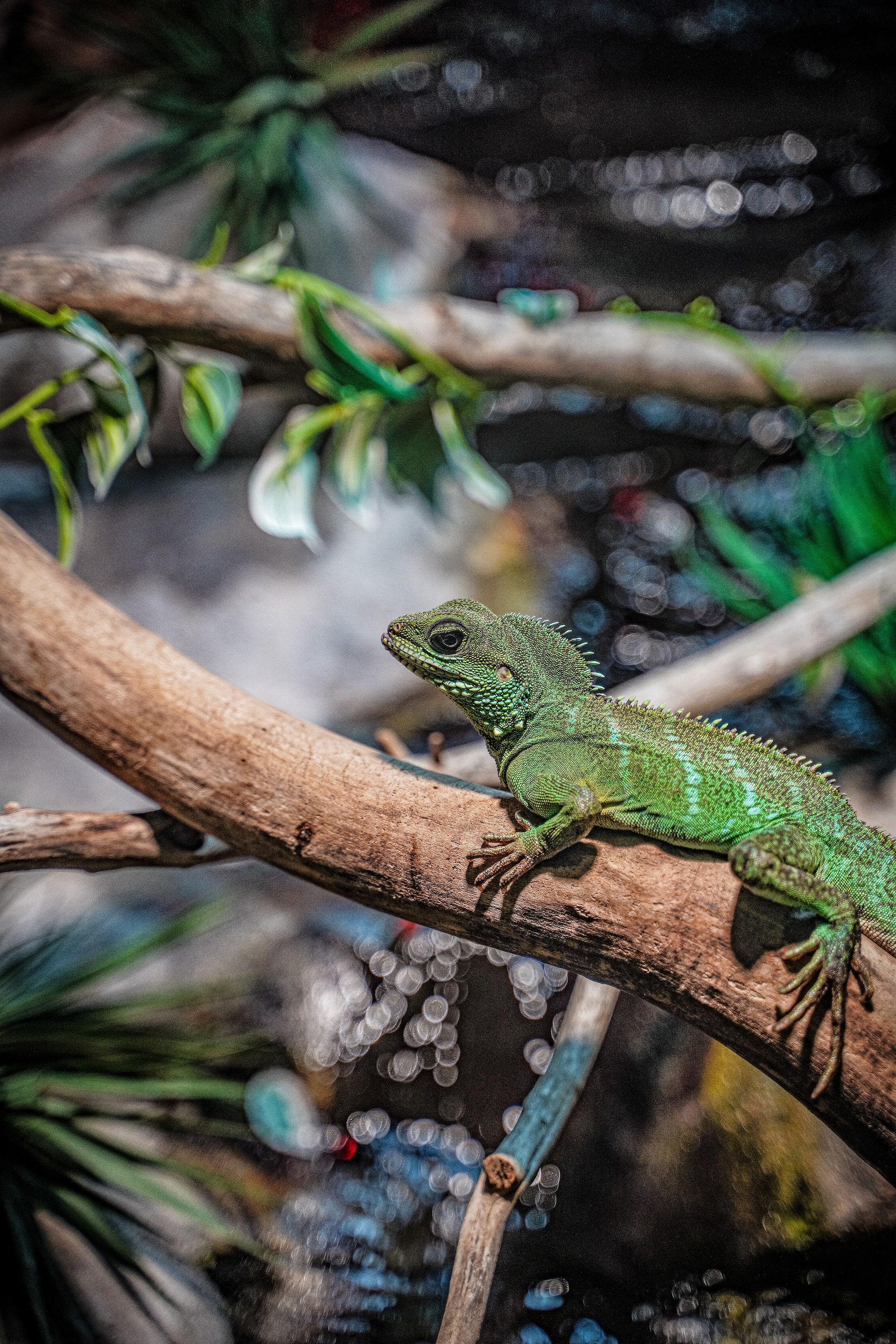 Photo by Cameron Gawn: https://www.pexels.com/photo/chinese-water-dragon-lizard-on-brown-tree-branch-13875403/
Photo by Cameron Gawn: https://www.pexels.com/photo/chinese-water-dragon-lizard-on-brown-tree-branch-13875403/Water dragons are beloved for their docile temperament, manageable size, and hypoallergenic qualities, making them an increasingly popular choice for reptile enthusiasts. However, like all reptiles, they come with certain care considerations that are important to be aware of before bringing one into your home.
One such consideration is the potential for carrying salmonella. It’s essential to understand that reptiles, including water dragons, can carry the bacteria without showing any signs of illness. This is a common trait among reptiles and amphibians, as they live in environments that naturally harbor the bacteria. While salmonella infection is rare, it’s still important to practice good hygiene when handling your water dragon. Always wash your hands thoroughly after touching your pet, cleaning its enclosure, or handling food dishes to minimize the risk of exposure. With proper care and cleanliness, the likelihood of encountering health issues related to salmonella can be greatly reduced.
Another important point to note is that water dragons, like most reptiles, will only bite in self-defense. These creatures are generally very friendly and calm, and they tend to avoid aggression unless they feel threatened. If they perceive a danger or feel cornered, a water dragon may bite as a means of protecting itself. However, these instances are quite rare, especially with well-socialized dragons. Handling your pet gently and providing a stress-free environment will help avoid situations where they might feel the need to defend themselves.
While water dragons are relatively easygoing and enjoyable to care for, it’s important to remember that they are still wild creatures at heart. Ensuring that they feel secure, comfortable, and respected will go a long way in fostering a positive relationship with your pet. By providing the proper environment, keeping a clean habitat, and being mindful of their natural instincts, you can enjoy a long, happy relationship with your friendly, fascinating water dragon.
Chinese Water Dragons: Friendly and Affectionate Pets with Proper Handling
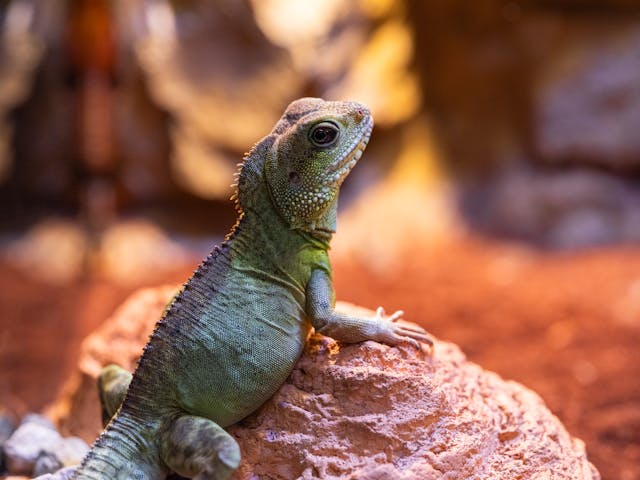 Photo by Engin Akyurt: https://www.pexels.com/photo/chinese-water-dragon-on-rock-20643132/
Photo by Engin Akyurt: https://www.pexels.com/photo/chinese-water-dragon-on-rock-20643132/AChinese Water Dragon pet is known for their calm and friendly nature, and one of the most delightful traits about them is that they enjoy being held. Unlike many reptiles that tend to shy away from human interaction, Chinese water dragons can become quite affectionate and comfortable with their owners. When handled regularly and gently, they tend to form strong bonds with their humans and will often tolerate and even enjoy being held.
The key to developing this bond lies in consistent, positive interaction. Frequent handling, especially when they are young, helps them get accustomed to human contact, making them more relaxed and docile. Over time, a water dragon that has been handled properly can become incredibly tame, enjoying the attention and affection it receives from its owner. This affectionate nature makes them a unique and engaging pet for reptile enthusiasts who are willing to invest the time and care required to form a trusting relationship.
However, neglecting a Chinese water dragon or failing to handle it in a calm and gentle manner can lead to undesirable behaviors. Like any animal, if a water dragon feels ignored or mistreated, it may become defensive or aggressive. In such cases, they may exhibit signs of stress, including tail whipping or even biting if they feel threatened. This is why it’s essential to interact with them regularly and ensure their environment is stable and comfortable.
If a Chinese water dragon is frightened or feels cornered, it might react with a quick whip of its tail or a bite. While these behaviors are a defense mechanism, they are typically not aggressive in nature—they are simply the dragon's way of protecting itself. Proper handling and allowing your pet to feel safe and secure in your presence will greatly reduce the likelihood of these defensive actions.
By understanding their needs and maintaining a consistent, calm approach, Chinese water dragons can thrive as affectionate, tame companions. Their friendly, trusting nature will reward you with a pet that enjoys interacting and bonding with you, making them a wonderful choice for reptile lovers looking for a more interactive experience.
Chinese Water Dragons: Active Daytime Companions
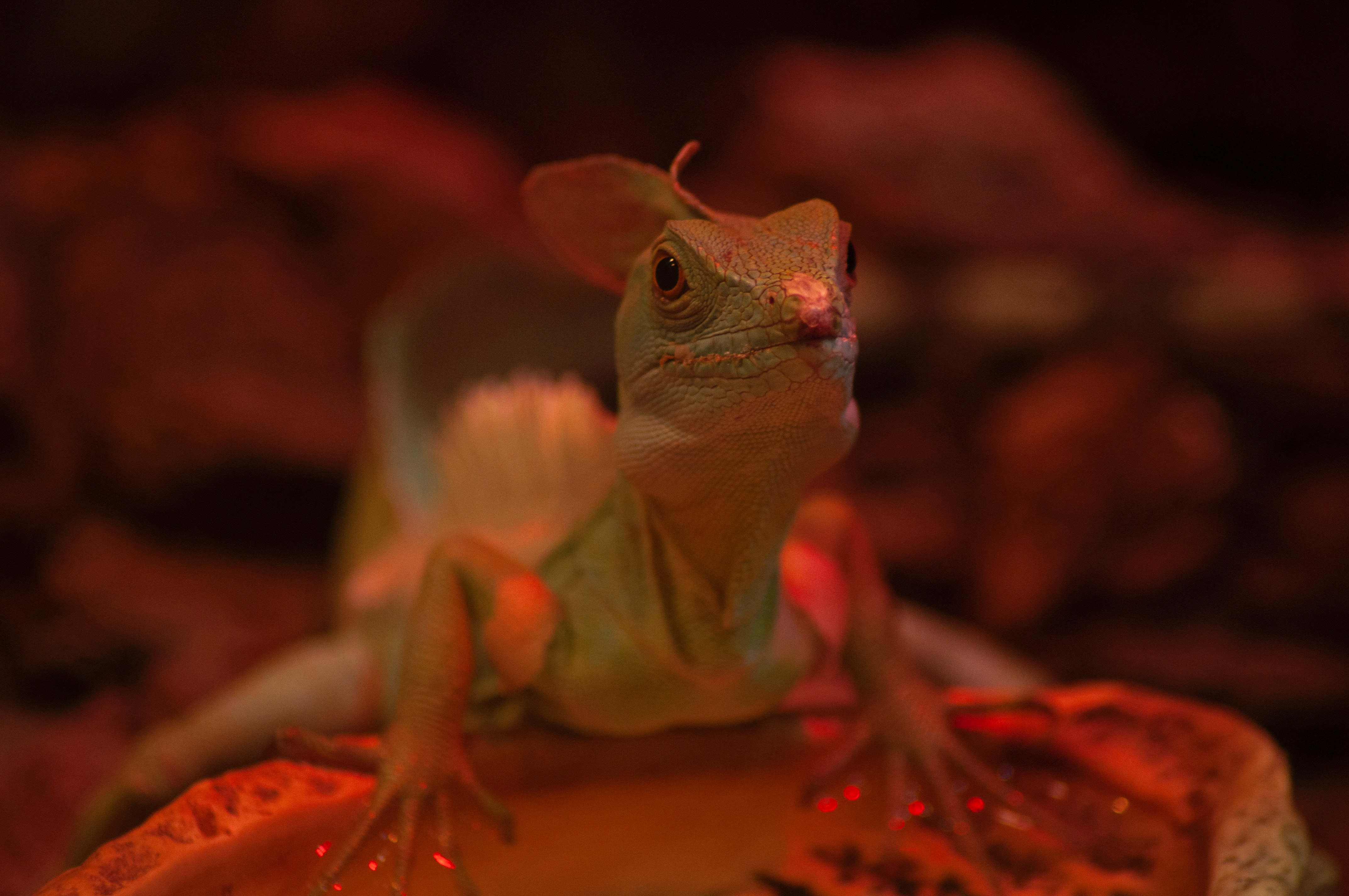 Photo by Anastasiya Pavlova https://www.pexels.com/photo/chinese-water-dragon-9825359/
Photo by Anastasiya Pavlova https://www.pexels.com/photo/chinese-water-dragon-9825359/Chinese water dragons are diurnal creatures, meaning they are most active during the day and sleep at night. This makes them an ideal pet for owners who enjoy interacting with their pets during waking hours. Unlike some nocturnal reptiles, which are more active in the evening, Chinese water dragons thrive in a daytime environment, where they can bask in their heat lamps, explore their enclosure, and interact with their human companions.
During the day, you’ll often find your water dragon climbing on branches, soaking in their basking area, or foraging around their habitat. Their energy levels peak in the daylight, as they are naturally designed to hunt, climb, and explore in their native tropical environments. This active period offers ample opportunities for bonding, play, and feeding, which are key elements in keeping them healthy and happy.
At night, however, they settle down and rest. Providing a quiet, dark environment for them to sleep in is essential to mimic their natural habitat and support their rest cycle. Ensuring they have a consistent day-night rhythm, with appropriate lighting and temperature changes, will help them stay well-adjusted and maintain a proper sleep pattern.
By observing their natural daytime behaviors and giving them a peaceful night’s rest, you can ensure that your Chinese water dragon remains active, healthy, and content. Whether they’re basking under their heat lamp, climbing around their enclosure, or simply relaxing during the evening, Chinese water dragons make fascinating and engaging pets.
Chinese Water Dragons: Size and Growth
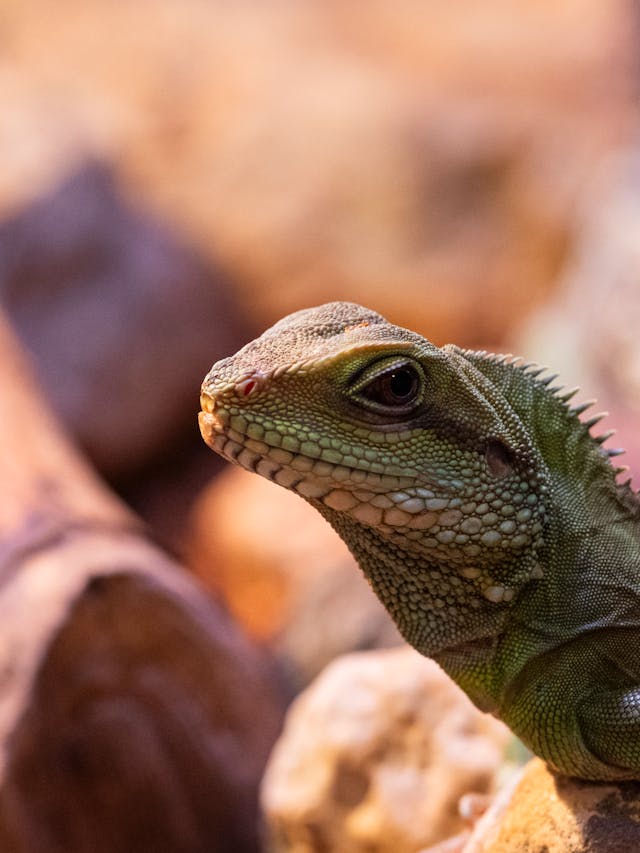 Photo by Engin Akyurt: https://www.pexels.com/photo/chinese-water-dragon-head-20643130/
Photo by Engin Akyurt: https://www.pexels.com/photo/chinese-water-dragon-head-20643130/Chinese water dragons can grow impressively large, with adult males reaching up to 3 feet in length, including their long, striking tail. The tail makes up the majority of their size, often accounting for more than half of their total length. These reptiles have a sleek, elongated body that allows them to move gracefully both on land and in the water, reflecting their natural environment in the wild.
Females, however, tend to be smaller than their male counterparts. While males can grow up to 3 feet, females usually stay closer to 2 feet in length. Despite the size difference, both males and females share similar characteristics, including their vivid green color, long claws, and unique facial features that make them such fascinating pets.
Their size requires a spacious enclosure to keep them comfortable and allow them to express their natural behaviors. Providing ample room for climbing, basking, and swimming is essential to maintaining their well-being as they grow. With proper care and attention, your Chinese water dragon can enjoy a long, healthy life, thriving in an environment suited to their size and natural instincts.
Health Considerations and Life Expectancy for Chinese Water Dragons
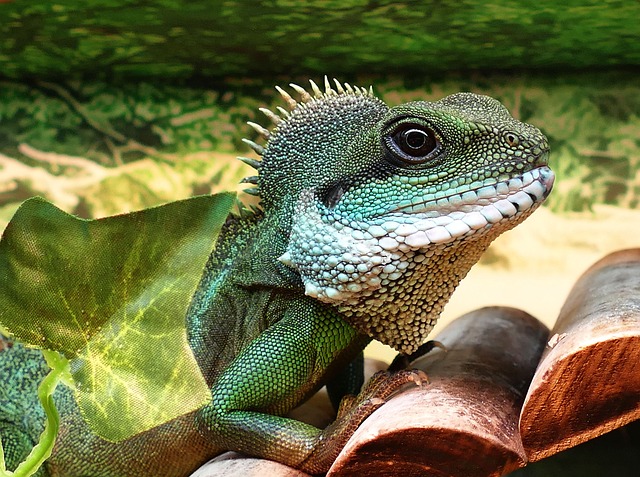 Image by InspiredImages from Pixabay
Image by InspiredImages from PixabayChinese water dragons, like all reptiles, require careful attention to their health in order to live long, happy lives. While they are generally hardy creatures, there are a few common health issues that owners should be aware of to ensure their pets remain healthy.
1. Metabolic Bone Disease (MBD):
Metabolic Bone Disease is one of the most common health issues in reptiles, and Chinese water dragons are no exception. MBD is caused by a deficiency of calcium, vitamin D3, or improper UVB lighting, which prevents the reptile from absorbing calcium properly. This results in weak bones, deformities, and in severe cases, paralysis. Ensuring that your dragon gets proper UVB exposure, a calcium-rich diet, and a well-balanced diet can help prevent MBD.
2. Mouth Rot (Stomatitis):
Mouth rot, or stomatitis, is an infection that affects the mouth, gums, and teeth. It’s commonly caused by poor husbandry, especially when the environment is too humid or not clean enough. Symptoms include swelling, pus around the mouth, and a loss of appetite. Regular cleaning of their habitat and maintaining good hygiene is key to preventing mouth rot. If you notice any signs of infection, it's important to consult with a reptile veterinarian immediately.
3. Skin Infections:
Chinese water dragons are prone to skin infections, especially if they are housed in too humid or unsanitary environments. These infections can manifest as shedding problems or sores on the skin. Keeping their habitat clean, with appropriate humidity levels (typically 50-60%) and temperature gradients (80-85°F during the day and slightly cooler at night), will help reduce the risk of skin issues.
4. Dystocia (Egg Retention):
Dystocia is a condition that affects female Chinese water dragons when they are unable to lay eggs, either because they are stuck inside the reproductive tract or due to insufficient space to lay them. This can be life-threatening if not addressed promptly. Female water dragons need a proper environment that allows them to dig and find a secluded spot for laying eggs. If you suspect your female water dragon is struggling with egg retention, seek immediate veterinary care.
With proper care, Chinese water dragons can live a long time, with an average life expectancy of 10-15 years. Some well-cared-for dragons have been known to live even longer, especially when they receive consistent, proper husbandry, a nutritious diet, and regular health check-ups. Being mindful of common health concerns and acting quickly at the first signs of illness will help you ensure your water dragon stays healthy and enjoys a long life in your care.






New! Comments
Have your say about what you just read! Leave me a comment in the box below.